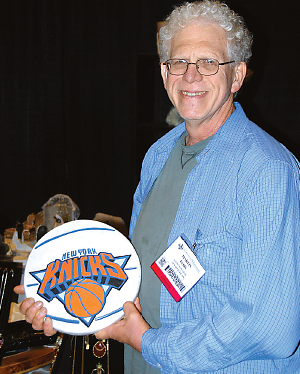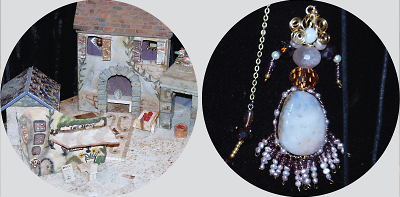Old Stones Build New Foundations
Abstract
At one New York company, psychiatric patients and others recycle building materials and rehabilitate themselves.
No, “Stones on 5th” is not the World’s Greatest Rock ‘n’ Roll Band strolling down New York’s famed avenue.
The name belongs to a small company that takes fragments of leftover or broken stone used for countertops or shower stalls and turns them into salable works of art. But this marble and granite fabrication business recycles not just stone but lives as well.

Psychiatrist Martin Korn, M.D., helps patients and others return to productive lives by working at the stone recycling company he founded in New Rochelle, N.Y.
Psychiatrist Martin Korn, M.D., runs Stones on 5th in New Rochelle, N.Y. His employees are people who may have psychiatric disorders or members of their families or who are just underemployed.
“They can come in and learn a skill,” said Korn in an interview. “I wrap the job around the individual.”
Korn started Stones on 5th in 2007, inspired by the chunks of leftover material after the kitchen and bathroom in his house were remodeled.
“We use everything,” he said. “Our motto is ‘No stone left behind.’ ”
The workers create a variety of products from the stone: plaques, jewelry, religious objects, or small tableaux of weddings or village scenes.
Korn is hardly bothered by the fact that others consider the raw material scrap. “The beauty is in the break,” he said. And the random way that each chunk of stone fractures means that many pieces are truly one of a kind.
The employees can set their own time and work when they feel most efficient. But once they get familiar with the operation, Korn nudges them toward regular business hours as a way to prepare them for the less-accommodating general workforce.
“This is a true wellness system,” he continued. “We psychiatrists work with medications and therapy, but the ability of our patients to get and keep work is essential.”

Employees of Stones on 5th construct vignettes like this village scene (left) out of broken or cast-off pieces of marble and granite. They also produce jewelry (right) from recycled marble.
Stones on 5th differs from other supported-employment programs in that the company accepts no grants. Korn still subsidizes it out of his own private practice, but he hopes the company will soon produce enough revenue so that it won’t require this continued input.
After Korn completed his undergraduate, medical school, and psychiatric training at the University of Pennsylvania, he conducted research on the neurobiology of suicide and violence. He also held a number of clinical positions at Mount Vernon Hospital in Mount Vernon, N.Y., over the years.
However, he has also had an interest in social enterprises. In the early 1990s, he developed Econet, a “socially dedicated” corporation intended to serve the homeless and other severely socially disadvantaged people.
With more marketing support, the investment in equipment and people could pay off, he said. So far, any profits have been plowed back into training the workers. Because some of them are his patients, for ethical reasons he does not accept any of the proceeds from the company.
“The next stage is getting it to work by itself,” he said. “It’s not just a business; we want to develop a model for others.”
And perhaps his idea has a longer history, one with a similar moral. After all, as Psalm 118 says: “The stone that the builders rejected has become the chief cornerstone.”
Korn may not have had exactly that in mind, but he has found a way to recycle rejected stone and build a new foundation for his patients and other workers. ■
The Web site for Stone on 5th is http://www.stoneson5th.com/.



